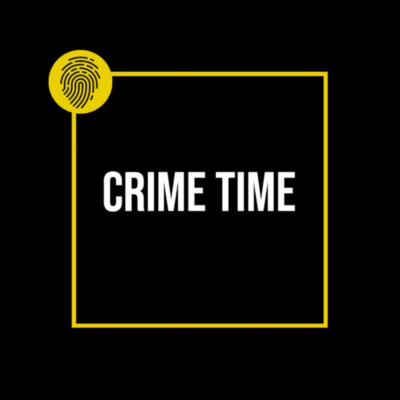
Fraud Eats Strategy
Podcast von Scott Moritz
Nimm diesen Podcast mit

Mehr als 1 Million Hörer*innen
Du wirst Podimo lieben und damit bist du nicht allein
Mit 4,7 Sternen im App Store bewertet
Alle Folgen
59 FolgenThe world is a turbulent place in 2025 and doing business outside of the U.S. means needing to understand and to be able to react to a dynamic and evolving risk environment. The many countries and amazing people comprising Latin America are an important customer base and trading partner for most global organizations. Many global businesses have significant operations in the region and despite the turbulence, the region is full of opportunity. Drug cartels, transnational crime groups and gang violence, corrupt public officials, unstable governments, and professional kidnap for ransom operations are just a handful of the challenges that face global organizations operating in Latin America. To take advantage of the bountiful opportunities across the region, organizations need to be able to proactively identify, manage and mitigate these and other operational risks. It starts with knowing who you are doing business with, their reputations, prior conduct and whether their political connections are a help or a significant hindrance. Likewise, it is equally important to be able to deploy international counsel and their partners to triage crises, investigate negative events, stabilize volatile situations, understand and act upon the compliance implications and pursue avenues of recovery when losses occur. Learn more about your ad choices. Visit megaphone.fm/adchoices [https://megaphone.fm/adchoices]
On inauguration day, President Trump rescinded numerous Executive Orders from prior administrations including one in which appointees within each Executive Branch Agency was required to sign a pledge not to accept gifts from lobbyists, recuse themselves from matters related immediate former employers or clients for 2 years, and not to participate in any matter for which they lobbied the government as a registered lobbyist for 2 years. The pledge also required appointees upon leaving government not to communicate with their former agency or senior White House Senior Staff for 2 years, not to assist others to do so, not to lobby the U.S. government or on behalf of a foreign government or political party, not to accept a golden parachute payment coinciding with the acceptance of an appointment and to make employment decisions on their merits. The President has made a series of unorthodox appointments to head major government agencies including people who have publicly advocated for disbanding and/or radically changing those agencies and calling them “irredeemably corrupt” or other extremely derisive terminology. Also on inauguration day, the President pardoned ~1500 January 6th rioters and commuted the sentences of 14 others. Then, the DOJ mandated that the FBI turn over the names of all FBI personnel who participated in the January 6th investigations and fired or threatened to fire anyone who refused to comply. This was preceded by over a dozen firings of senior FBI and DOJ officials who played a substantive role in the January 6th investigations and prosecutions. Ultimately, the names of ~5000 FBI personnel were turned over without much assurance that their names wouldn’t be publicly released posing genuine safety concerns. But perhaps the biggest body blow to the federal law enforcement community came on January 24, 2025 when President Trump fired 16 inspectors general of the 16 largest, most complex U.S. government agencies and a 17th, the IG for USAID Paul Martin, 2 weeks later. In case that purge wasn’t enough to upend the government’s ability to police itself, Hampton Dellinger, the head of the Office of Special Counsel and David Huitema, Director of the Office of Government Ethics were also fired. And the upheaval continues unabated. Learn more about your ad choices. Visit megaphone.fm/adchoices [https://megaphone.fm/adchoices]
Of the various fraud scheme names that have been coined over the years, “Pig Butchering” is one that provokes the most visceral response based on the name alone. And yet, the actual act of Pig Butchering is even more horrible than the name suggests. It is the latest variation of an age-old type of crime under the umbrella of “Romance Schemes”. People who prey on the lonely and elderly pretending to be a potential romantic partner with the express purpose of defrauding them. Guest Erin West, founder of Operation Shamrock [https://operationshamrock.org/], speaks about the mission to raise awareness of pig butchering with everyone, everywhere, all the time. Learn more about your ad choices. Visit megaphone.fm/adchoices [https://megaphone.fm/adchoices]
A discussion on China's state-sponsored theft of intellectual property from the U.S. and other leading economies with guest Frank Figliuzzi. Frank is a national security contributor and regular columnist for NBC News and MSNBC. He was the assistant director for counterintelligence at the FBI, where he served 25 years as a special agent and directed all espionage investigations across the government. He is the author of “The FBI Way: Inside the Bureau’s Code of Excellence [https://frankfigliuzzi.com/fbiway/]”, and his most recent book "Long Haul: Hunting the Highway Serial Killers [https://frankfigliuzzi.com/fbiway/long-haul/]." Learn more about your ad choices. Visit megaphone.fm/adchoices [https://megaphone.fm/adchoices]
Losses from a major financial crime can have a long term, negative impact on an organization. The odds of recovering those losses are not great. In fact, many fraudsters embark on their criminal path because of the financial wreckage that is their personal lives. Divorces, job losses, health crises and addictions often cause otherwise decent, law-abiding people to lose their minds, become desperate and commit fraud. Fraudsters who committed crimes because of crushing debt don’t usually represent an attractive option when it comes time to seek financial recovery. Third parties sometimes do. The most reliable avenue for financial recovery may be your insurance carrier. Fraud losses incurred because of employee dishonesty are probably covered under your commercial crime or fidelity policy. If the bad actors in your company are board members or officers, the losses may be covered by your Directors & Officers (D&O) liability policy. Other policies that could come into play depending upon the facts include your general liability, property and casualty, professional liability and cyber policies. Learn more about your ad choices. Visit megaphone.fm/adchoices [https://megaphone.fm/adchoices]























